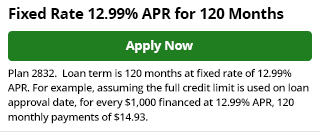With the surge in electric vehicle (EV) ownership, having a home charging station is becoming increasingly essential. Installing an EV charger not only provides the convenience of charging your vehicle at home but also enhances your property’s value and supports sustainable living.
Why Install an EV Charger at Home?
Installing an EV charger at home offers numerous benefits:
- Convenience: Charge your vehicle overnight and start each day with a full battery.
- Increased Property Value: Homes with EV chargers are appealing to environmentally conscious buyers.
- Environmental Impact: Reduce your carbon footprint by using your home’s electricity, potentially sourced from renewable energy.
Types of EV Chargers:
Understanding the different types of EV chargers can help you choose the right one for your home:
- Level 1 Chargers: These use a standard household outlet and are best for overnight charging or smaller batteries.
- Level 2 Chargers: Faster than Level 1, these require a dedicated 240-volt circuit and are ideal for all types of EVs.
- DC Fast Chargers: While uncommon in homes due to high power requirements, they offer rapid charging times.
Choosing the Right Charger for Your Home:
Select a charger that complements your vehicle’s needs and your home’s electrical capacity:
- Vehicle Compatibility: Ensure the charger matches your vehicle’s make and model.
- Charging Speed: Consider how quickly you want to charge your EV each day.
Preparing for Your EV Charger Installation:
There are several things that should be taken into consideration before the technician arrives.
- Location: Choose a practical location for the charger that is easily accessible to your EV.
- Proximity to Electrical Panel: The closer the charger is to your main electrical panel, the simpler and less costly the installation.
- Power Requirements: Verify that your home’s electrical system can handle the additional load, or plan for potential upgrades.
A certified electrician should handle the installation to ensure safety and compliance:
- Safety Inspections: The technician will inspect your electrical system to ensure it can safely support the charger.
- Installation: The electrician will install the charger, make all necessary electrical connections, and test the system.
- Final Setup: Integration with home energy management systems if applicable.
Maintenance Tips:
Regular Inspections: Check the charger periodically for any wear or damage.
An EV charger is a significant upgrade that enhances your home’s functionality and its appeal in a rapidly evolving automotive market. With proper planning and professional installation, you can enjoy the full benefits of EV ownership.
Ready to install your home EV charger? Contact Turn It On Electric for expert installation services that ensure safety, efficiency, and reliability. Let us help you make the most of your electric vehicle.










